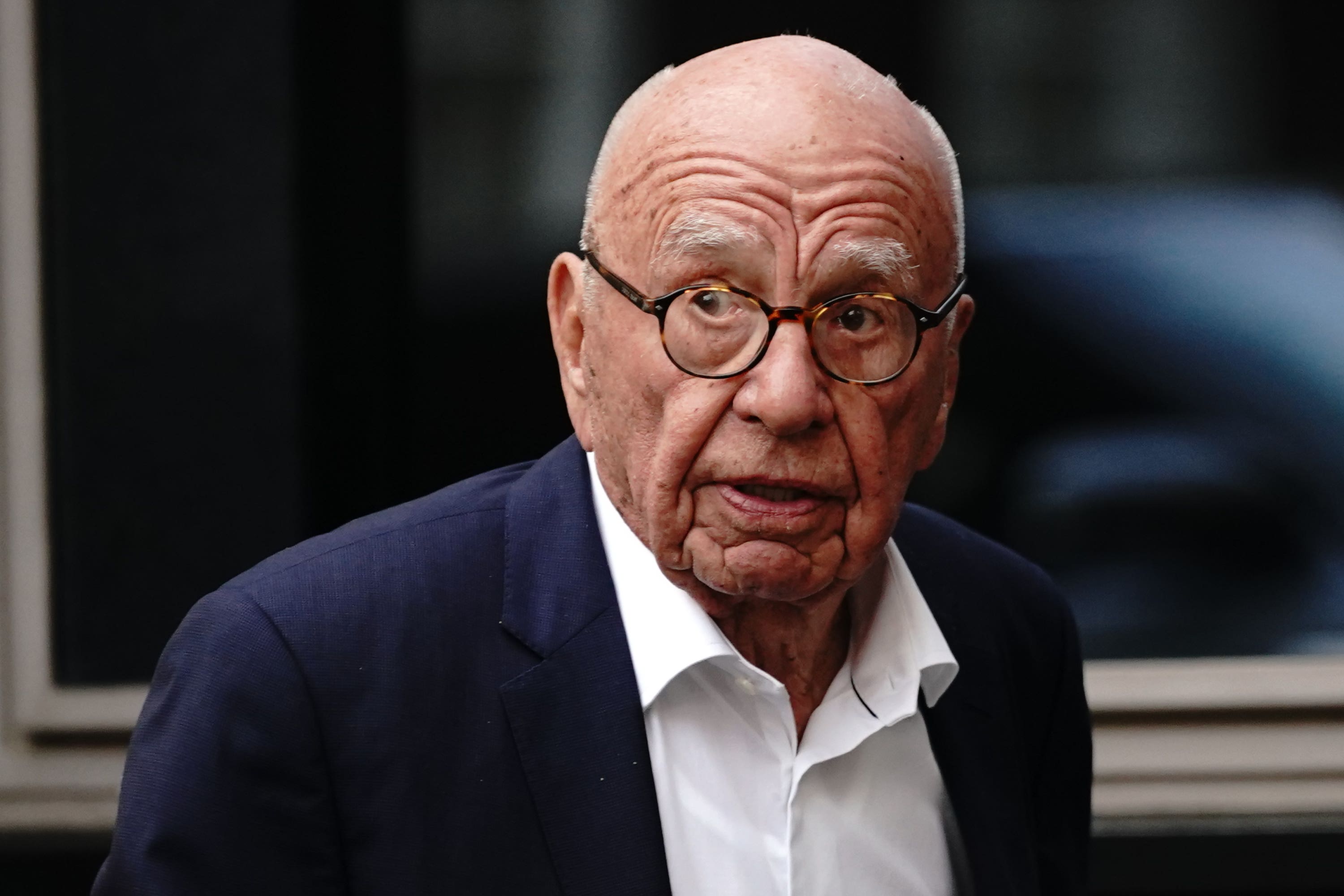Another big business name backs Keir Starmer – is Rupert Murdoch next?
Larry Fink, billionaire boss of BlackRock, the investment company that employed George Osborne, has praised the Labour leader, writes John Rentoul. But will big money do Labour any favours?


I can exclusively reveal that conversations are taking place in Westminster over the possible defection of at least one Conservative MP to the Labour Party. Not because I have any direct knowledge of such talks, but because that is how politics works.
The mood of the times is tilting heavily in Labour’s favour. Whatever the outcome of today’s by-elections, Keir Starmer’s party is miles ahead in the national opinion polls, and big-name endorsements are coming thick and fast.
The latest is Larry Fink, the billionaire boss of BlackRock, the investment company that once employed George Osborne, who told a Wall Street Journal podcast: “I’m very pleased to see how the Labour Party in the UK went from an extremist party with a Marxist leader to Keir Starmer, who has shown real strength, as a moderate Labour Party.”
As a US-based financier and lifelong Democrat, our next election is nothing to do with him, but he adds to the weight of opinion, including international opinion, that Starmer is ready to become prime minister.
Only last week, Max Hastings, the former editor of The Daily Telegraph, said he would vote Labour at the general election. It was also only last week when Mark Carney, the former governor of the Bank of England, recorded a video praising Rachel Reeves, the shadow chancellor. And when John Caudwell, the Phones4U founder, said he would no longer be giving money to the Conservatives and would consider donating to Labour instead. Anna Soubry, the former Tory minister, said she too would be voting Labour.
There will be more to come. I don’t mean to compare Sir Max to a sheep, but he is a bellwether. He voted for Tony Blair in 1997 and 2001, and so his return to the fold invites comparisons between the early New Labour era and today.
Blair saw a procession of business leaders, One Nation Tories, Liberal Democrats and celebrities traipse into his big tent, each headline reinforcing the impression that the centre of gravity of British politics was shifting towards Labour. Although it was a quarter of a century ago, one of the issues driving the flock was the same then as it is now: Europe.
Then, many business leaders were alarmed by Tory Euroscepticism and turned to Blair as the defender of the mainstream view not only that EU membership was in our economic interest but that the option of adopting the euro should be kept open. Now, the backlash against Brexit is having a similar effect. One of the reasons Sir Max says he will vote Labour is that he thinks leaving the EU has been a “disaster”.
Today, there are other issues pushing elite endorsements Labour’s way. Rishi Sunak’s “pragmatism” about net zero, for example, was what bothered Caudwell. But the parallels with the Blair period are unavoidable. In the 1990s, Tory MPs fell like ninepins to a series of financial and sexual scandals – David Mellor, Tim Smith, Neil Hamilton, Tim Yeo and Jonathan Aitken – and now here we are again, with the added embarrassment for the government that the recall law means that the fall of each ninepin – Owen Paterson, Neil Parish, Boris Johnson, David Warburton, Chris Pincher and Peter Bone – is followed by a by-election.
Hence the obsession in Westminster with two other elements of the historical “decaying Tory government” story. One is the question of whether Rupert Murdoch will repeat his 1997 surprise of delivering The Sun’s endorsement of Labour. That endorsement is less valuable these days, in the internet media age, and the element of surprise has gone.
Starmer would still love it, though, and was pleased to be awarded a coveted place on the sofa next to Murdoch at the mogul’s annual drinks party this summer. Murdoch fed the cottage industry of “which way will he go” speculation when he handed over to his son Lachlan and promoted himself to News UK’s equivalent of the House of Lords last month – but insisted: “In my new role, I can guarantee you that I will be involved every day in the contest of ideas.”
Michael Wolff, Murdoch’s biographer, said his subject may back Starmer if Labour looks like “a certain winner”. On the other hand, would Murdoch really endorse someone who, as director of public prosecutions, tried to put several of his Sun journalists in jail in the phone-hacking trials?
I doubt it, but the other Westminster obsession – defections – is more likely to bear fruit. In October 1995, Alan Howarth, a mild former education minister, caused a sensation by crossing the floor to New Labour. In this parliament we have already had Christian Wakeford, the MP for Bury South, who has been rewarded by Labour with a front-bench job as a junior whip.
The chances of at least one further defection are high, which is why I assume that those conversations are continuing. Any Tory MP can calculate that their political career prospects are better under a Labour label – either in their own marginal seat, such as Wakeford’s, or in a safe seat offered to them, such as was given to Howarth, parachuted into Newport East in 1997.
Larry Fink’s endorsement is significant not because the global billionaire financier community has many votes at the next election, but because it is an indicator of the way the wind is blowing. Just as a single MP crossing the floor of the House would not really change the arithmetic of parliamentary votes, but it would be a sign that the earth is moving in a premonition of a landslide.
Join our commenting forum
Join thought-provoking conversations, follow other Independent readers and see their replies
Comments


Bookmark popover
Removed from bookmarks